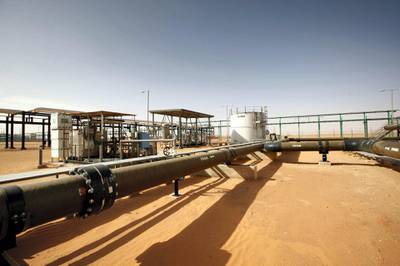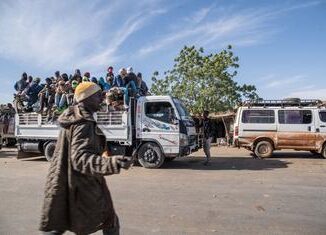
Production at Libya’s Sharara oilfield, which was shut on Thursday, July 13, 2013, following the abduction of a former finance minister, has partially resumed at 30,000 barrels per day out of its usual 290,000, two Sharara oil engineers said on Saturday.
Production will return to normal on Sunday morning, they said.
The Sharara field, one of Libya’s largest production areas with a capacity of about 300,000 barrels per day, has been a frequent target for several political reasons and demands by local protesters.
The field is located in Murzuq basin in southeast Libya. It is run by the state oil firm NOC via Acacus company with Spain’s Repsol (REP.MC), France’s Total (TTEF.PA), Austria’s OMV (OMVV.VI), and Norway’s Equinor (EQNR.OL).
Sharara and two other oilfields closed in a protest by al-Zawi tribe in response to the kidnapping of former finance minister Faraj Bumatari.
In a message to Reuters on Saturday, the tribe’s leader Al-Senussi Al-ahlaiq confirmed the release of Bumatari, who was kidnapped after arriving at Mitiga airport on Tuesday.
Two other oilfields, El Feel and 108, remain shut.
Libya’s oil minister Mohamed Aoun told Dubai-based Asharq TV on Saturday that the oilfields’ closure had cost the North African country the production of 340,000 barrels.
The oil ministry also said the closures could lead to the declaration of force majeure.
“The loss of confidence in the continuity of Libyan oil supply to the global market will result in a loss of market share for Libyan oil and decreased demand for it,” the ministry said in a statement.



